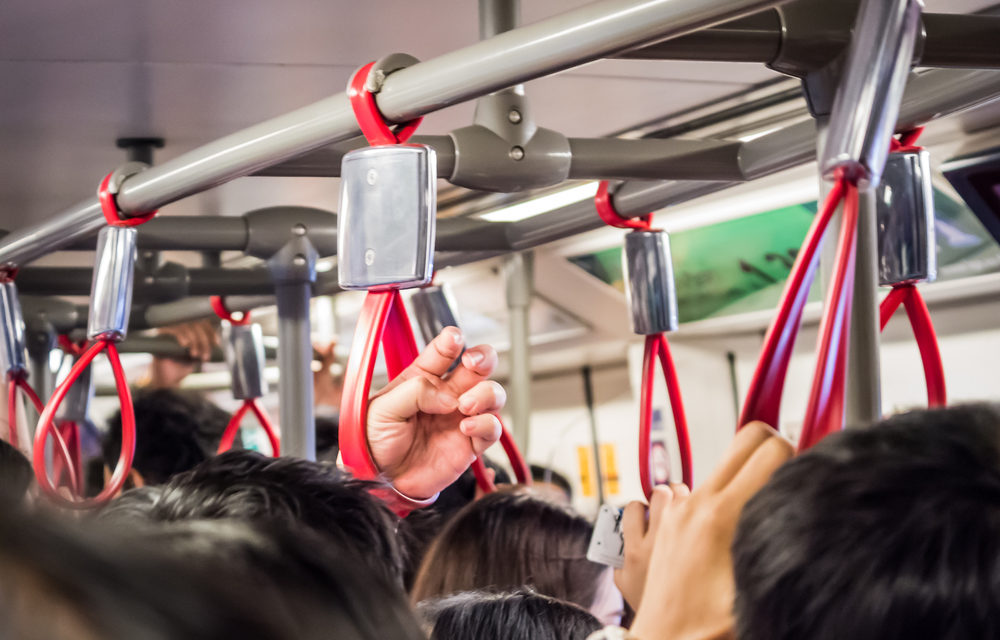BY PAUL P. SKOUTELAS, APTA PRESIDENT AND CEO

The sweetest victories are often the ones hardest fought. This is especially true in the fight for federal funding. Public transportation celebrated one such victory on March 23 when a $1.3 trillion bipartisan spending bill for Fiscal Year 2018 became law.
The measure boosts funding for FTA programs to $13.5 billion, well more than the $12.3 billion previously authorized. In addition, funding for all FRA commuter and passenger rail programs increased to $3.1 billion.
Public transit programs funded through the Highway Trust Fund were all fully financed out of the Mass Transit Account as authorized by the FAST Act. On top of that, Congress provided an additional $834 million for many of these programs.It’s no coincidence that in the days preceding the vote, hundreds of APTA members were on Capitol Hill visiting their congressional representatives and telling compelling stories about the importance of public transit. APTA’s annual Legislative Conference had drawn more than 600 transit leaders, business executives and supportive stakeholders to Washington, DC, during the budget debate—and we used this fortuitous timing to our best advantage.For the past year, APTA members and staff have been engaged in an aggressive advocacy campaign that involved outreach to members of Congress, coalition building, educational events, grassroots activism, targeted advertising and social and traditional media.
An Industry-Wide Win
The bill provides significant benefits to nearly every segment of our industry. For example:
Bus and bus facilities funding overall was increased from $720 million in FY 2017 to $1.1 billion, with an additional $400 million for formula, competitive and low-emissions grants. The bill also increased funding by $400 million for State of Good Repair grants and by $30 million for High Density States.
Rail safety and State of Good Repair programs grew to $888 million, which includes $250 million for Positive Train Control implementation, an issue on which I testified before Congress in February. Amtrak funding and other passenger rail programs also increased.
The Capital Investment Grants (CIG) program—one of APTA’s most important advocacy issues, which had been targeted to be phased out under the FY 2017 and 2018 budget proposals—increased from $2.4 billion in FY 2017 to $2.6 billion. This includes more than $1.5 billion for New Starts, almost $716 million for Core Capacity projects and $401 million for Small Starts. Congress also included language to ensure CIG funds are awarded to projects as the FAST Act intended.
TIGER Grants, a program the administration proposed eliminating, received a threefold increase from $500 million in FY 2017 to $1.5 billion, 30 percent of which is targeted to rural projects.
This was more than a big win for public transportation, it was historic: $13.5 billion is the largest amount appropriated for public transit in an annual spending bill—and the largest one-year increase, with more than $1 billion in growth for FTA programs.
Our Work Continues
This year’s funding victory shows that Congress understands the value we deliver to communities of all sizes. It also shows that a strong federal partnership with state and local governments is essential to sustaining and improving our nation’s public transportation infrastructure.
But our work is not done. As good as this bill is for our industry, it is only good for one year. So, we need to advocate for similar funding levels for Fiscal Year 2019.
We also need to persist in urging Congress to address the Highway Trust Fund solvency issue, especially in the context of a potential infrastructure package. This is why APTA members need to continue to take their messages to their representatives on Capitol Hill and back home.
Finally, predictable, multi-year funding is the only way public transit agencies can plan for new service, maintenance, repairs and the transformational changes that are redefining mobility. Therefore, we’ve already begun working on recommendations for reauthorization of the FAST Act when it expires in about two years.
Our success in achieving these forward-looking goals is likely to be influenced by how well we use the FY 2018 monies we’ve just been given. As APTA members—and as an industry—we have a responsibility to demonstrate this was a wise investment on the federal government’s part.
Among other things, this means:
1) Making safety, reliability and customer service top priorities under State of Good Repair;
2) Meeting statutory deadlines for FTA approval of State Safety Operating plans and the installation of PTC systems;
3) Transforming our role from transit vehicle operators to multi-modal mobility integrators for entire communities; and
4) Sharing innovative ideas and best practices among ourselves, as well as with elected officials and the public, to generate even greater support for what we do.
Thanks to the hard work of APTA members and staff, we have an extraordinary opportunity to write our own future. Let’s make this hard-won victory the start of public transportation’s next chapter of achievements.

